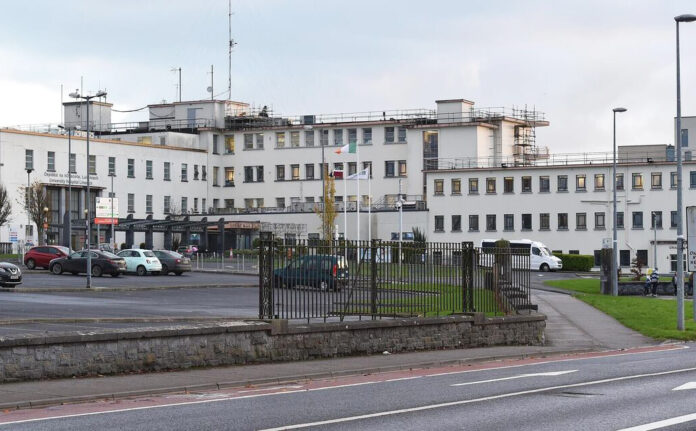
CONSULTANTS at University Hospital Limerick (UHL) have been reluctant to sign up to new contracts which could see them rostered on at weekends because they don’t trust management to work the system properly.
That was the opinion presented to an Oireachtas Committee when consultants’ representatives appeared before them last week.
And a leading emergency consultant raised concerns that hospital overcrowding is forcing the transfer of patients out of critical-care beds even though they are not ready.
The Oireachtas Health Committee was hearing from a delegation from the Irish Medical Organisation (IMO) doctors’ union.
Dr Peadar Gilligan, who works in Beaumont Hospital in Dublin, said a lack of bedspace means that patients also often have their their entire episode of care over several days on a trolley without ever seeing a bed.
And patients who have suffered a serious episode, such as a heart attack or a stroke, may not be seen in a timely fashion.
“We frequently have to move patients out of critical-care areas who are not yet ready to move out because of the pressure on that area,” he told the Oireachtas health committee.
He said UHL needs around 400 more beds in the area, as well as more access to stepdown and rehab care.
The meeting was also told that patients are not yet seeing the benefits of a new work contract based around more flexible rostering, including evening and Saturday shifts.
It could be worth up to €300,000 for consultants who opt for it.
IMO chief executive Susan Clyne said the contract, which means doctors will treat only public patients in public hospitals, had been taken up by 2,229 consultants.
“It is not realistic to infer that the health service will see tangible benefits if consultants are consistently rostered outside ‘normal’ working hours,” she said.
“With the deficits in our workforce, there is no room for manoeuvre – we are quite literally adopting a policy of robbing Peter to pay Paul.”
Asked by Senator Martin Conway why so few UHL consultants had signed up to the new work contract allowing them be rostered at weekends, Ms Clyne said she presumed it was possibly due to a “lack of trust in how the hospital will be able to implement the terms of that contract”.
The committee heard that the recruitment freeze means that it is not unusual for junior doctors to work 100 hours in a week.


